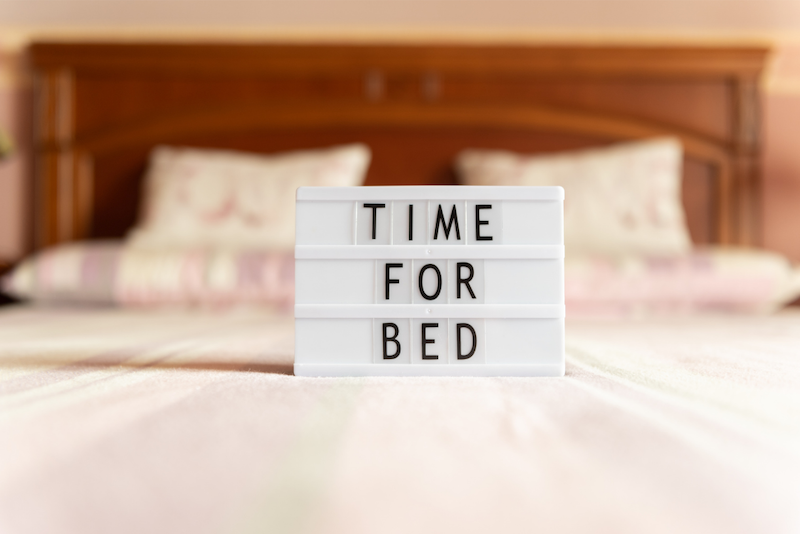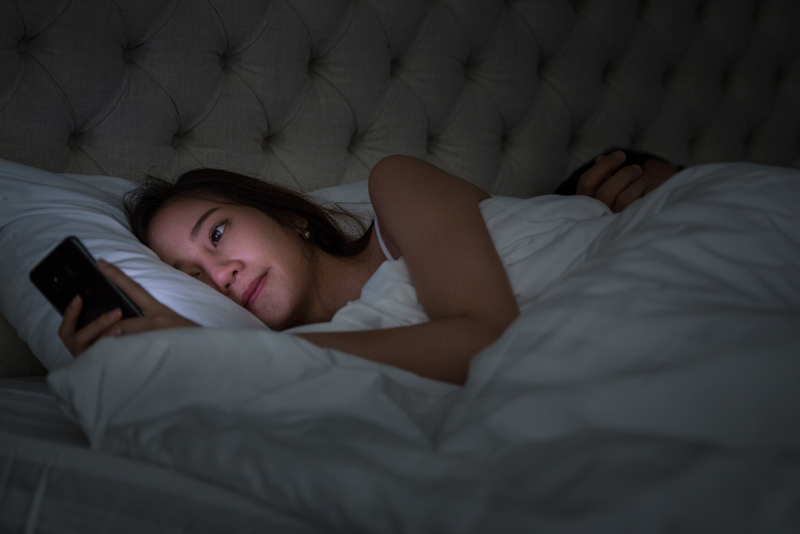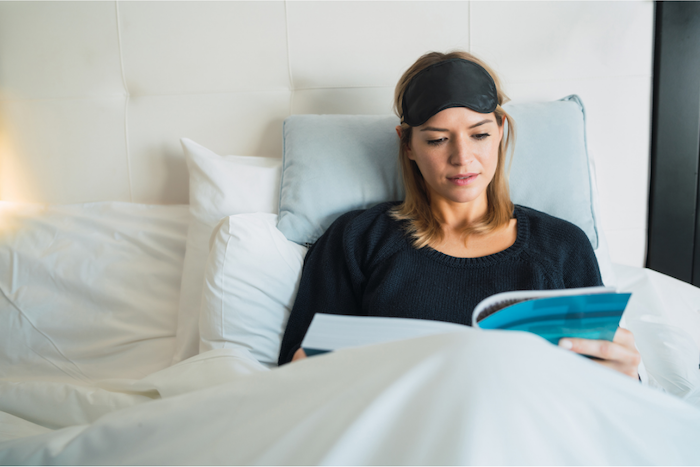Getting a good night’s sleep is a challenge that many people face.
In fact, an estimated one-third of Americans don’t get enough sleep on a regular basis. [1]
If you’re one of them, don’t worry. There are things you can do. Establishing a bedtime routine is a simple change that can help your mind and body relax at the end of the day, signaling that it’s time to sleep.
What is a bedtime routine and why are they important?
A bedtime routine is a set of actions you follow each night before bed, about 30 to 60 minutes before settling in. These can vary from reading, writing in a journal, meditating, taking a bath, and more.

Establishing these routines are important and can allow you to have an easier time once it’s time to fall asleep.
Humans are creatures of habit, and our brains certainly pick up on our habits. [2]
When you undergo the same calming activities before bed, it tells your brain that it’s time to wind down and sleep soon.
A night time routine can also help reduce late night stress and anxiety – factors that can keep you up at night with worrisome thoughts. Ruminating like this in bed can stimulate your mind and sympathetic nervous system – something you don’t want when you’re trying to sleep. Left unchecked, this may eventually develop into insomnia. [3, 4]
In children, a bedtime routine has been shown to help them fall asleep faster and wake up less frequently during the night. Additionally, research has shown that children with bedtime routines have better memories, mental health, and attention spans than those without bedtime routines. [5, 6]
And it’s no different for adults. Bedtime routines help us separate the day from night, clear our mind and body, lose the day’s stress, and allow us to drift into a sleepy mindset.
If you’re having trouble falling asleep or staying asleep, try these tips to help you establish a more suitable bedtime routine.
1. Set a bedtime
You have an internal sleep-wake cycle. Essentially, it’s your body releasing certain hormones to either tell you it’s time to sleep or time to wake up and get on with the day.
By setting a bedtime, you can make this cycle more effective. This can train your brain to know when to release these hormones and allow you to feel naturally tired. It can also help you feel more rested and awake in the morning, especially if you’re getting up at a similar time each day.
Decide your bedtime and start doing your bedtime routine beforehand so that you’re getting into bed around the same time each night.
2. No electronics before bed

Tv and social media may be an escape from your day, and you may think you’re relaxing, but it’s not setting you up for a good sleep.
Remember your sleep-wake cycle? Well, the blue light emitted from these devices’ screens trick your brain into thinking there is still daylight. This suppresses your brain from releasing the hormones that are meant to make you tired and prepared for sleep.
Don’t trick your brain. Leave your electronics alone during your bedtime routine.
If you have to use your phone or laptop during this time, be sure to put your “blue light filter” on. You can also find blue light filter glasses or screen cases to help limit this disturbance.
3. Have a light snack or tea
If you have a heavy meal or alcohol before bed, this can disrupt your sleep in many ways. At the same time, going to bed hungry can also upset your stomach.
A light snack can be a nice middle ground, calming your stomach enough so you’re not too hungry or too full. Cherries, grapes, strawberries, nuts, and oats all have a high melatonin content – the main hormone responsible for making you feel sleepy and ready for bed.
Including a non-caffeinated herbal tea is also a good idea, especially if it includes chamomile, lavender, or another calming, sleepy ingredient.
4. Take a warm bath
Part of your sleep-wake cycle includes a drop in your core body temperature.
It may seem counterintuitive, but a warm bath can actually reduce your core body temperature, which researchers have found can help induce sleep! [7]
5. Listen to music
Regardless of the genre, music that you personally find calming can help you fall asleep. In fact, according to research, plenty of people listen to music to help them fall asleep — and it works! [8]
Other types of audio can also help you fall asleep, such as white noise, rain, waves, or other ambient noises like a fan. Research has shown that these can actually help you fall asleep faster and stay asleep once you do. [9, 10]
6. Stretch, breathe, and relax
Deep breathing exercises, progressive muscle relaxation, and other relaxation techniques can help you let go of physical and mental tension. This, in turn, can help you sleep. [11]
Additionally, yoga routines have been found to improve sleep quality, and so has stretching before bed. [12, 13]
7. Read a good book

Reading before bed can help your eyes get heavy and allow your mind to drift from the stresses of the day.
Just remember to not stay up later than you intended!
8. Journal
Journaling before bed can allow you to get all of your thoughts and feelings sorted out on the page before turning out the lights. This way, you focus on them less as you’re trying to ease your mind and fall asleep.
Another approach is taking a few minutes to jot down a quick to-do list for the next day. While this may seem like it’d be stressful, researchers found that doing so helped participants fall asleep faster. [14]
9. Prep your bedroom
A major aspect of not just your bedtime routine, but your ability to find sleep could have to do with where you’re sleeping.
Make your bedroom as cool, dark, quiet, and cozy as possible. Set the thermostat accordingly, put aside electronics, dim the lights, and get blackout curtains if needed. Additionally, make the area clean and clutter-free and maybe even turn on a diffuser with a calming essential oil.
10. Take CBD
CBD is well-known as a sleep aid. Many people have found great success in finding sleep by taking a highly absorbable CBD tincture like SomaLeaf as part of their bedtime routine.
To learn more about why CBD is so effective as a sleep aid, click here!
Getting to sleep
The last thing you want to do before sleeping each night is turning off your bedside lamp and closing your eyes. You don’t want your brain to associate your bed with anything else but relaxing and sleeping.
If you’re looking for ways to get a better sleep, we hope these tips help you!






